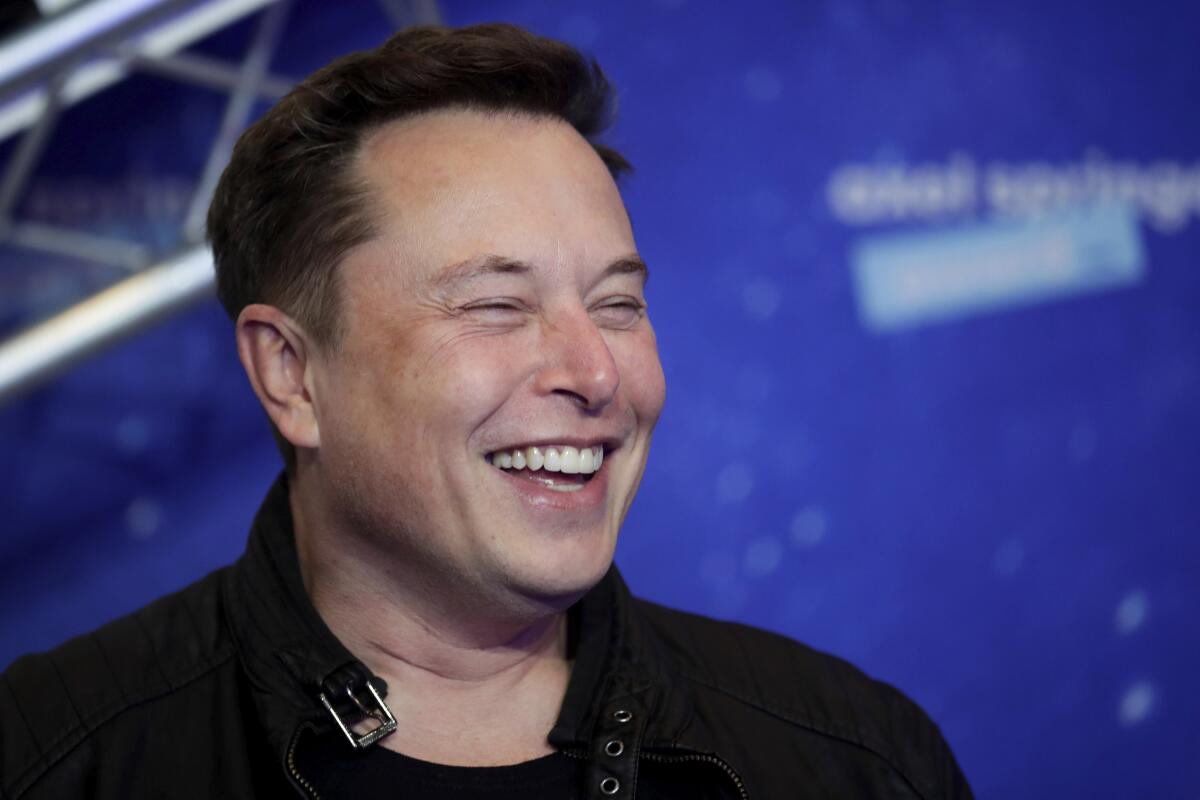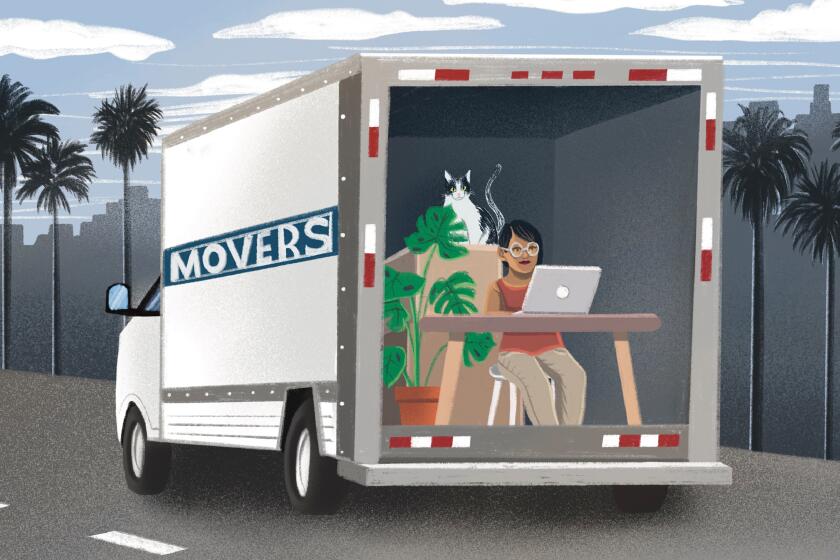Elon Musk moves to Texas, criticizes California

Elon Musk has moved to Texas to focus on two big priorities for his companies: SpaceX’s new Starship spacecraft and Tesla Inc.’s new Gigafactory, currently under construction in Austin.
There also are potentially enormous tax implications for Musk, who recently became the world’s second-wealthiest person. Texas has no personal income tax, while California imposes some of the highest personal income levies in the nation on its richest residents.
“I have moved to Texas,” Musk said Tuesday, speaking in an interview with the Wall Street Journal. Musk did not specify where or say whether he has bought a home.
Musk, 49, has lived in the Los Angeles area for two decades. He’s the chief executive of SpaceX, based in nearby Hawthorne, and of Tesla, which is based in Palo Alto and has its main factory across San Francisco Bay in Fremont.
Former engineer says Tesla forced her out and then libeled her. Her lawsuit against the company is testing the limits of the arbitration agreements that bind millions of American workers.
Musk criticized California in the interview, saying the state had become complacent with its status as an economic giant and less attractive to him.
“If a team has been winning for too long they do tend to get a little complacent, a little entitled, and then they don’t win the championship anymore,” he said. “California’s been winning for a long time. And I think they’re taking them for granted a little bit.”
He recently moved his personal foundation to Texas from California.
The San Francisco Bay Area, home to the headquarters of some of the world’s biggest tech companies, has been upended by the pandemic. Many tech employees have been required to work from home, leading some to relocate.
Working from home will become the norm for many employees even after the pandemic ends. But prepare for a pay cut.
Social media giants such as Facebook Inc. also have faced criticism for allegedly thwarting competition and for their role in the spread of misinformation.
“Silicon Valley, or the Bay Area, has too much influence on the world, in my opinion,” said Musk. “The Bay Area has outsized influence on the world.”
SpaceX tests rocket engines in McGregor, Texas, and is building its massive Starship spacecraft in Boca Chica, Texas. Tesla is expanding its global operations with a factory in Shanghai that opened last year and another being built in Berlin.
Musk, who has always been highly mobile, frequently shuttles between California cities, Austin and Boca Chica, Texas, on his private Gulfstream G650 jet, along with frequent international trips to Berlin and China.
As Tesla’s stock has soared this year, Musk’s personal wealth has ballooned to more than $155 billion, making him the second-richest person in the world after Amazon.com Inc.’s Jeff Bezos.
Musk’s long relationship with California soured this spring during the first wave of the COVID-19 pandemic. When Alameda County shutdown orders stopped production at Tesla’s plant in Fremont, Musk defied local health officials by closing late and reopening early. On an earnings call, he blasted the health rules, calling them “fascist.” He briefly sued the county and threatened to move Tesla’s headquarters to Texas or Nevada.
Musk disclosed on Twitter last month that he had tested positive for COVID-19 himself.
But Musk’s relationship with California is likely to endure. Thousands of his employees work in the Golden State. He also has five teenage sons with his ex-wife Justine Musk, and the two have joint custody.
Earlier on Tuesday, Tesla announced plans to raise $5 billion in additional capital, which Musk said will go toward retiring debt and building up the company’s growing cash reserves — which he seemed to downplay.
“Debt retirement and to have a bit more of a war chest,” Musk said. “At the end of the day what is money? Money’s an entry in a database.”
Tesla almost tripled its cash and cash equivalents to $14.5 billion as of Sept. 30, up from $5.3 billion a year earlier. Its total debt — excluding vehicle and energy-product financing — came to $8 billion in the third quarter, unchanged from a year ago.
More to Read
Inside the business of entertainment
The Wide Shot brings you news, analysis and insights on everything from streaming wars to production — and what it all means for the future.
You may occasionally receive promotional content from the Los Angeles Times.










